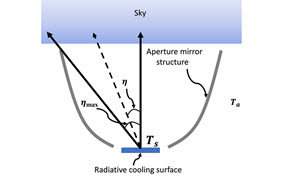EC Proposes Quantum Flagship
Quantum initiative for the European digital economy.
A €1 billion European flagship initiative on quantum technology proposed earlier this year could “unlock the full potential of quantum technologies,” accelerate their development, and bring commercial products to the consumer marketplace in a “second quantum revolution,” according to Günther H. Oettinger, European Commissioner of Digital Economy and Society.
 The ambitious plan to support joint science, engineering, and application work in quantum technologies would be similar in size to two ongoing EC projects, the Graphene Flagship and the Human Brain Project.
The ambitious plan to support joint science, engineering, and application work in quantum technologies would be similar in size to two ongoing EC projects, the Graphene Flagship and the Human Brain Project.
The Quantum Flagship, tentatively planned to be launched in 2018, is part of a broad package of proposals to strengthen the European digital economy.
Europe wants to play a leading role in the development of quantum technologies for communication, computing, sensing, and simulation applications, Oettinger said.
To move the Quantum Flagship initiative along, Oettinger and Dutch Minister of Economic Affairs Henk Kamp in May unveiled a “Quantum Manifesto,” a pan-European strategy for creating revolutionary new information and communication technology applications with quantum technology.
“Quantum technology has the potential to transform global industries and markets, which will lead to prosperity and sustainable growth for Europe,” Kamp said.
Added Oettinger: “No single country can make it on its own. Cooperation is essential to succeed. Now it is time to act together at the European level to live up to this major European initiative.”
The Quantum Flagship would be partly financed by Horizon 2020, the EU framework program for research and innovation, with additional financial support and governance from member states, companies, and universities. The quantum technologies community in Europe is believed to include more than 300 research groups and some 70 small- to medium-sized enterprises.
The EC has already supported quantum technologies over the last 20 years with a cumulative investment of nearly €550 million.
As part of the proposed Quantum Flagship, the Dutch government, together with public and private partners like Microsoft and Intel, will invest more than €250 million over the next 10 years to develop quantum computers and quantum internet via its QuTech project.
The manifesto makes clear that quantum secure communication and computing will be a key part of future computing infrastructure.
The Institute of Photonic Sciences in Spain has recently received €1.7 million from the AXA Research Fund for a quantum information technology project focusing on data privacy. (See article).
- Have a question or comment about this article? Write to us at spieprofessional@spie.org.
- To receive a print copy of SPIE Professional, the SPIE member magazine, become an SPIE member.



